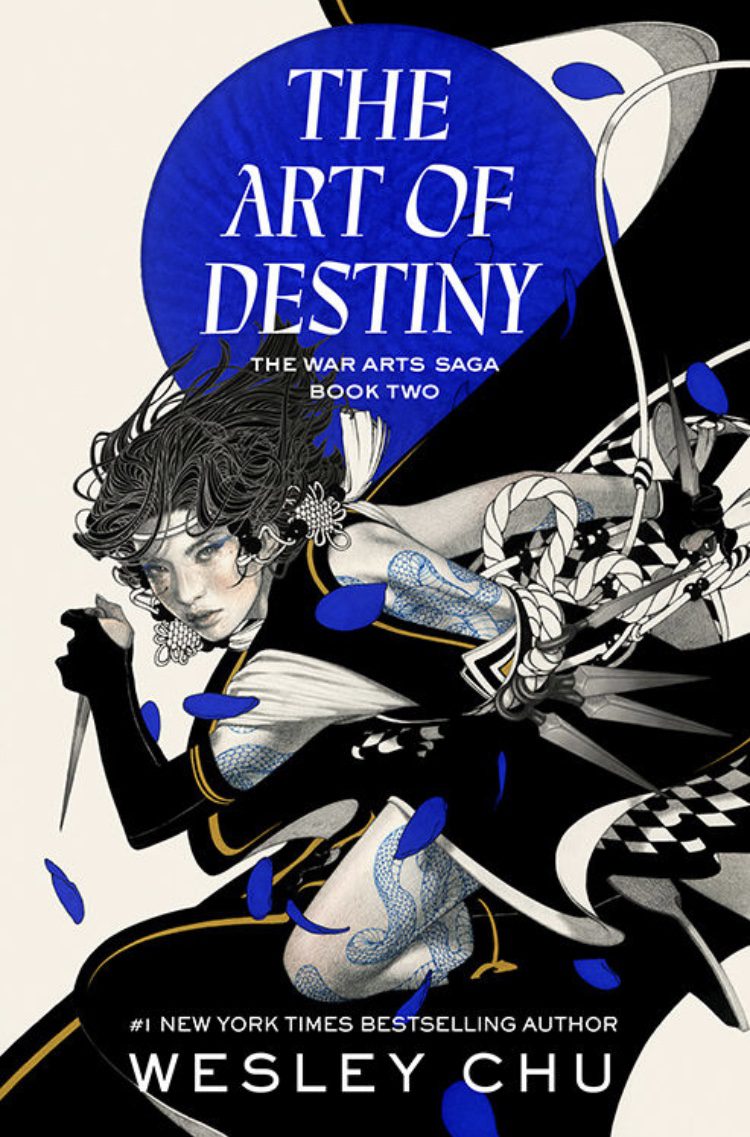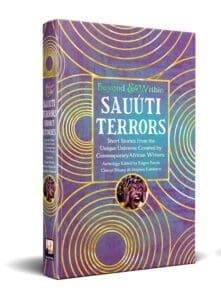
Synopsis
What happens when a once-prophesied saviour is no longer needed? Jian has worked his whole life to destroy an immortal enemy, only now, that enemy is dead. He’s no longer a saviour, but an ordinary young man trying to find his own way. That’s when destiny comes knocking.
Jian is training to become the next master windwhisperer, following in the footsteps of his grouchy grandmaster mentor, Taishi. But Jian still has a long way to go before he becomes Taishi’s heir, able to fulfil the battle fate has in store for him.
It’s not only Jian’s destiny that lurks in the shadows. Qisami — a master assassin — is trying to find her true self in her new undercover role. And Sali is resisting her fate to find the next Eternal Khan in order to save her family and her city.
Sometimes, destiny is grander than any prophecy can foresee. And the greatest destiny of all may be the one you choose for yourself.
Review
It feels like Wesley Chu was destined to write this book.
The Art Of Prophecy (book one of the War Arts Saga) took the traditional hero’s journey and flipped it on its head. Instead of the ordinary person venturing on a quest to discover something great about themselves, Jian (the fabled saviour of the world) must go on a quest to become an ordinary person. How do you follow up such a subversive and fun idea? To put it simply — you do it like this.
Classic wuxia has a great many tropes from which to draw. Inventive action. The mentor/mentee dynamic. Martial arts that border on the mythological. The Art of Destiny has all of this in spades. But it doesn’t solely appeal to die-hard wuxia fans. If you’re a lover of SFF in general, you’ll find this to be a real treat.
The biggest difference between the first book and its sequel is the narrative structure.
In book one, the plot blossomed to incorporate several main characters but remained fixed firmly on Jian — the prophesied hero who was said to one day slay the Eternal Khan. This time, the narrative is divided equally between three main strands: Jian and Taishi (the young hero learning from his master), Sali (a disillusioned warrior once devoted to the evil Khan), and Qisami (a shadowkill assassin). Yes, the two main antagonists from book one share as much page-time as the traditional protagonist, except, by about halfway through the book, you won’t think of them as antagonists. In fact, you won’t know whether any of them deserve the label of “bad guys” and “good guys.” It’s their subtle changes in perspective that make this a worthy sequel, subverting everything I thought I knew about these characters from book one. I fully expected them to pick up their roles from where we left them, and yet, like they’re fighting styles, they had the tendency to side-sweep me in the way their arcs unfolded, enabling them to deliver blows straight to the heart, and it left me reeling.
That’s not to say that this book is any less fun than the first. If anything, it dials up the humour to another level. It even throws in a mini-heist for each of the characters, as if things weren’t already crazy enough! Whether it’s a jailbreak, a rescue, or an undercover ruse, the chapters speed by. Banter abounds — sharp as the Swallow Dances blade — and the action is a riot (particularly in the second half).
My favourite character is Taishi. The old master is on impeccable form in every moment she appears. But each of the new characters in this ever-expanding world is given their own standout moment, and you can’t help but be endeared to them.
This could so easily have been just a vessel for cool action, but it’s not— it’s a book which has something to say (although its message and themes come across in a whisper rather than a scream). I loved the subtle speculation over whether destiny negates choice — whether we can choose to change the path of our lives or not. This central question makes the shifting character dynamics even more poignant, adding an extra dimension to the characters’ journeys, and leaving you with more to think about than just “kick, kick, punch.”
There’s a lot of build in the early parts of the book, but it all leads to a satisfying climax. Trust me — the payoff is very much worth the setup. And I guess that’s a little bit like destiny, isn’t it? It always arrives, and usually when we least expect it.
If you’re a fan of wuxia, you’ll drool at how good this series is. Book two does not disappoint. It’s every bit as irreverent, entertaining, full-throttle, indulgent, inventive, refreshing, and playful as the first book. This is a saga destined for greatness, and I cannot wait to see what’s coming next.








Leave a Reply